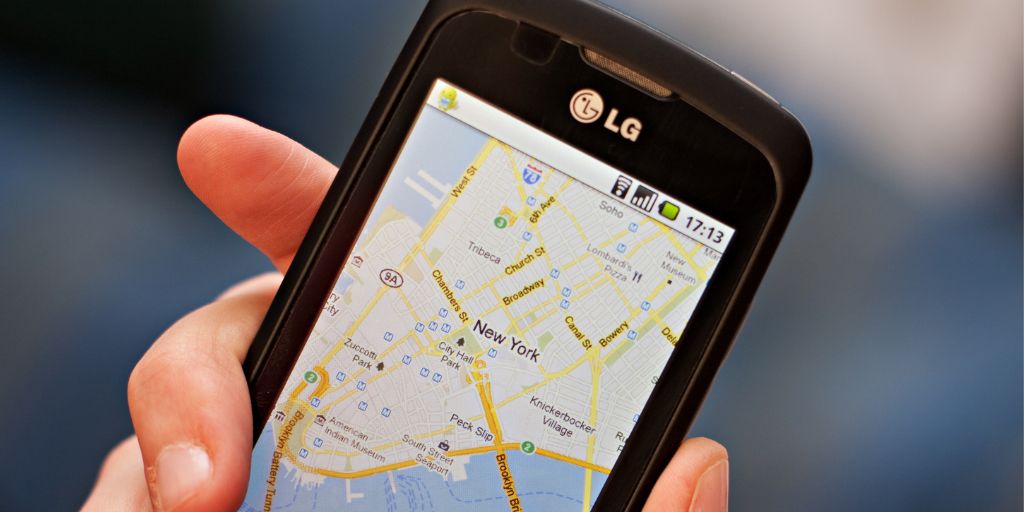
Remember telling your parents you were hanging at a friend’s house when really you were at a party? Or sneaking out during a sleepover to TP your crush’s house? (Don’t worry, your secrets are safe with us.)
In the age of cell phones and location tracking, tweens and teens don’t experience the relative freedom we enjoyed as kids. The upside is that we as parents are less likely to have the harrowing experience of not knowing where our children are.
But even though you can track your child’s every move … should you?
The use of location-tracking services brings both benefits and concerns. It’s not an easy decision to know if, when, and how to use technology to monitor your child’s whereabouts.
Read on for more on the pros and cons of tracking your child and how to make a decision that works for your family.
Various apps such as Google Maps, Find My, and Life360 can be used to see the real-time location of your child’s device. These services use GPS to pinpoint the device’s exact whereabouts and display it on a map.

Android phones and iPhones also come with native location tracking capabilities. On Android, Location Sharing allows your child to share their real-time location with you. On iPhone, you can do the same with the Find My app.
Here are a few of the potential benefits of tracking your child’s location:
If your child’s in danger, knowing their exact location means you can more easily come to their aid. If they’re in a car accident, for instance, location tracking allows you to more accurately send emergency services. Location tracking also lets you verify your child is where they said they’ll be. Plus, you’ll know if they go somewhere you deem unsafe.
If your child knows their whereabouts are being monitored, they may be less likely to engage in risky behavior because of the increased possibility of being caught. It also gives you the opportunity to follow up with them if their location makes you suspect they aren’t following your rules.
Modern parents have an endless stream of worries to contend with. Taking “where is my child?” off your mental list is no small upside.
Although the benefits to location tracking your child may be obvious, there are some important downsides to consider.
If you want to prevent your kid from simply turning off their location so you can’t track them, you can use parental controls to require a password before changing location settings. But teens and tweens are experts at outsmarting their parents when it comes to technology. From high-tech solutions like installing anti-spyware apps to low-tech methods such as leaving their phone at a friend’s house, where there’s a will, there’s usually a way.
This is a situation where it’s useful to call upon the techniques our parents used to keep track of us. If you suspect your child may not be where they say they are, or if their location isn’t available, don’t be afraid to reach out to their friends’ parents to find out what they know. Better yet, start by contacting your child directly — it’s easier to click a button to turn off location services than it is to outright lie to your parents.
Trust is a two-way street. In order to get trustworthy behavior from your kid, you need to give them room to earn it. Tracking your child’s every move could signal that you don’t trust them before they’ve given you any reason not to. If you choose to track your child, consider setting limits on when and why you’ll look at their location. Find opportunities for them to prove to you they can be trusted.

Although GPS typically provides shockingly accurate real-time location information, it’s worth noting it’s not infallible. Various factors like signal strength, atmospheric conditions, and physical barriers can weaken the accuracy of — or even completely obstruct — location tracking.
While this isn’t a reason to not use location tracking, it’s important to keep in mind. Before you jump to the worst conclusion about where your child is or why their location is temporarily unavailable, remember there could be a perfectly reasonable explanation: the GPS signal might not be working
Ultimately, the goal as a parent is to raise our children to be self-sufficient adults. As hard as it is, giving them increasing freedom as they get older is vital to teaching them the skills they need to be on their own someday.
If you decide to use location tracking, talk to your child about the decision and let them know that this is temporary. Encourage them to express their independence by demonstrating mature, responsible decisions — like checking in with you when they arrive at their location and keeping you updated on when they’ll be home. As they grow older, you can pull back on location tracking.
It can be easy to depend on technology at the expense of other tools in our parenting toolbelt. Because technology isn’t perfect — and because it’s possible for kids to outsmart it — it’s best not to let location tracking be your only means for keeping tabs on your child. Good old-fashioned communication is still important.
The teenage years are a time for forging independence. It’s a necessary phase of becoming an adult. If your child feels too monitored, they may be more likely to try and evade location tracking and engage in risky behavior while they’re off-the-grid. Giving them a degree of freedom will help lessen the likelihood they choose to rebel.
While things like parental controls allow you to monitor your child’s location without their consent, it’s best to avoid this. If they find out you’ve been tracking them (and they probably will), it’s likely to damage their trust in you and hurt your relationship.
Location tracking is also a common method of controlling a partner in abusive relationships, so how you approach the location-tracking conversation with your child can help teach them about consent in future romantic situations.
Be upfront with your child about why you want to track them. Involve them in the conversation about what tracking looks like. This expectation-setting will honor their autonomy and demonstrate you value their boundaries.

This isn’t to say you need to put your kid in the driver’s seat. As the parent, you’re allowed the final say. But the more you can make your child a partner in establishing the parameters of your location tracking, the greater chance it will provide the benefits you’re seeking.
Be clear and transparent about how you will use their location information, and be open to compromise. Perhaps you only look at their location to confirm they’ve arrived safely at their destination. If they're good about communicating their whereabouts and have done well to earn your trust, you might agree not to look unless you suspect something is wrong.
For various reasons, some kids need more monitoring than others. Every parent has their own comfort level for how much freedom to grant their child. Ultimately, you have to make a decision on location tracking that works for your family.
Location tracking your child presents both positives and negatives, and there’s no one-size-fits-all answer. Open communication and clear expectations are key to using it in a way that builds mutual trust and strengthens, rather than harms, your relationship with your child.
The same thinking applies to monitoring your child online. Spying on your kid won’t teach them how to use the internet responsibly — you want to teach them how to stay safe. Parents who use BrightCanary monitoring can easily supervise their children online, but it’s important to communicate why you’re monitoring and how it helps keep your child safe. While BrightCanary doesn't track physical location, it offers insights into your child's digital movements. You can monitor what your child says and does on YouTube, Google, and social media, and the app works well with Apple’s parental controls. Download the app today and start for free.